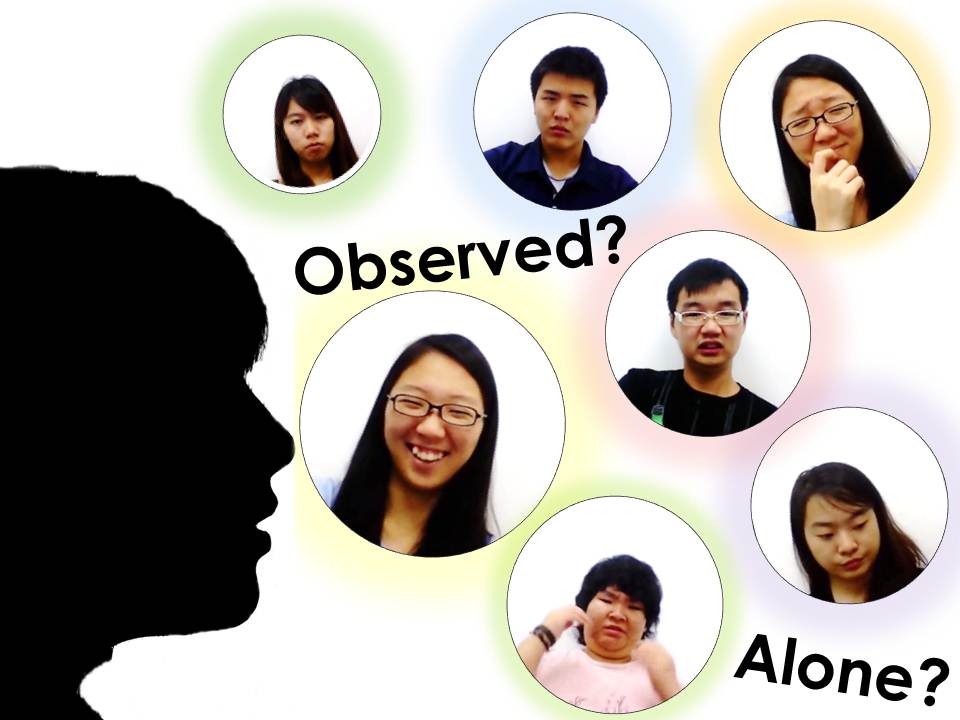
December 18, 2013, by Yvonne Teoh
Three Minute Thesis (3MT®) – Is Someone Watching You?
Here with the final installment of the Three Minute Thesis (3MT) competition series is Yvonne Teoh with her talk titled “Is Someone Watching You?”
As a psychology student, one of the most asked questions I get is can you read my mind. My answer is always no I can’t. As social beings, we have always been very fascinated with facial expressions. Even as we walk down a street, we’re constantly trying to read and understand the faces we see, we try to figure out what others are thinking or what they are feeling. By understanding these facial expressions, we can then act accordingly, like who we choose to be friends with or who we ask out on a date and so on.
Over the years, researchers have discovered that we have the ability to produce more than 7000 facial expressions with only 43 facial muscles. Facial expressions not only allow us to inform others of our emotions and intentions, but we can also use these expressions to learn about the social situations that others are experiencing. For instance, we are aware that people behave differently when there’s a stranger around than when they are alone.
My PhD research looks into how good individuals are in detecting whether someone was alone or observed by another in relation to how they expressed emotions such as disgust, fear, surprise, happy, anger and sad. I adopted a more realistic approach when it comes to capturing the videos of facial expressions, whereby people’s spontaneous reactions from watching emotional video, either alone or in the presence of an experimenter were filmed. These videos were then rated by others for the social situation.
What I’ve found, is that individuals were able to detect the social situations based on the brief samples of behaviour, and they were more accurate for some emotional expressions such as anger than others.
So, what does this all mean? Firstly, it demonstrates that we are able to benefit indirectly from the experiences of others because we are able to infer the social environment others are experiencing from merely observing their facial expressions. Secondly, by being able to detect social situations, it will help people to prepare whether they would approach or avoid the environment.
For the next step of my research, I am interested to see which part of the face people focus on when making these judgments, which will give us a further insight into how people understand these expressions. These findings can be used to develop our ability in understanding facial expressions and improve our emotional intelligence. Lastly, my research can also help improve the training tools available for teaching social skills to autistic and schizophrenic individuals.
Yvonne Teoh
(PhD Student, School of Psychology, UNMC)
-
Post a comment
